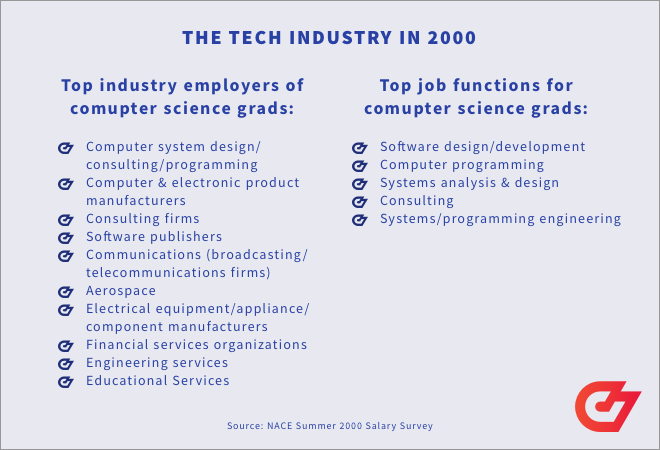
Understanding and measuring your employees' skills is key to managing human capital. Your business can use these skills to develop a pay incentive system that is more aligned between salaries and skill sets. By encouraging employees to increase their core competencies, a pay for skills system can help you reduce employee turnover and encourage retention. This will increase their satisfaction and help them stay longer in the company.
Employee engagement
Engaging employees is an essential component in managing human capital. Engaging employees means giving them meaningful feedback and giving them a sense of purpose. This process gives employees a voice and allows them to express their concerns and ideas. As such, managers should communicate regularly with their staff to understand their concerns and give them regular feedback.
Employee turnover is one of the most significant factors affecting an organization's productivity. Gallup found that the cost of millennial turnover to organizations is $30.5 billion per year. Engaged workforce are happier at work and more likely to stay where they are.
Performance management
Human capital performance management aims to align the strategy of an organization with its employees' performance. It involves setting goals, objectives, and ensuring everyone follows the same path. This includes creating and monitoring individual performance plans as well as determining compensation. Performance management focuses also on developing and identifying high-potential employees. This approach is applicable in many situations: from hiring and firing to evaluating quality and identifying training needs.

The best performance system will incorporate employee engagement and performance improvement. Employees feel invested in learning and are motivated to improve their performance. Microsoft's call-center agents gamification program is a good example. This is done to ensure employees are equipped with the knowledge and skills necessary for their jobs. To ensure employee success, the performance management system must be integrated with the employee training program.
Compensation
A good compensation package can make it easier to attract top talent. Remember that compensation is not about just cash. It's also about motivating employees. A well-designed compensation management system can help companies attract top talent, retain employees, and motivate them. A company's productivity and revenue can be increased by selecting the right compensation.
Compensation management aims to ensure that the benefits and salaries offered are fair and appropriate for current workers. This includes analyzing employee data and staying current with complex benefits administration rules. Although compensation is important, it's equally important to make sure that employees get paid correctly and on time.
Pay-for-performance
Pay-for performance is a great way of motivating your employees and keeping them happy. This model allows employees to increase their wages by meeting specific targets. This model can also be used to help you hire better-skilled workers. Although this compensation model is not right for every company it can encourage top performers and motivate them to stay.
When implementing pay-for-performance, it is important to ensure that the CEO and HR departments are fully committed to this concept. Mid-management will more likely follow the example of top management when they are supportive of the concept.

Learning
Employers can increase the value of their employees by using learning in human capital management. There are many options to make learning part of your business, regardless of whether you are hiring a new or existing employee. To improve your human resource, it is essential to research industry trends and determine the needs for your staff.
This can be done by providing training for your employees. Employees will feel more confident and excited about their job if they are given the right training. Employees who feel competent at their job will do well.
FAQ
How can I start an LLC consulting company?
It is important to first decide what you want as a service provider. Then you need to make sure you are qualified for those services. It may be a good idea to seek out someone who offers the services you need and observe their work.
Once you know your product/service, you should start looking for the right market. If they aren't available, you may need them to be created.
Then you need to decide whether you want to go into business for yourself or hire others to do it for you.
You could also consider starting your own consulting company by getting a license from the state, but this requires quite a bit of paperwork and legal fees.
How much should a consultant charge?
It all depends upon what you offer. If you are offering services for free, it is not worth charging anything. If you're selling products or services however, prices should be determined based on their value.
If you offer low-quality services then you don’t have anything for sale. Why would anyone pay anything for you?
If you provide high-quality service, you may ask for higher prices because people appreciate the value you offer. Customers who buy multiple services from you may qualify for discounts.
What qualifications do you need to be a consultant?
It is not enough to have an MBA degree. You must also have experience as a consultant. You must have at least two years' experience working in consulting and/or training within a large company.
You should have had experience working with senior management to create strategy. You will need to feel comfortable communicating ideas to clients and getting their support.
Additionally, you will need to pass a professional qualification such as the Chartered Management Institute Certified Management Consultant (CMC).
Statistics
- So, if you help your clients increase their sales by 33%, then use a word like “revolution” instead of “increase.” (consultingsuccess.com)
- Over 50% of consultants get their first consulting client through a referral from their network. (consultingsuccess.com)
- "From there, I told them my rates were going up 25%, this is the new hourly rate, and every single one of them said 'done, fine.' (nerdwallet.com)
- On average, your program increases the sales team's performance by 33%. (consultingsuccess.com)
- Over 62% of consultants were dissatisfied with their former jobs before starting their consulting business. (consultingsuccess.com)
External Links
How To
What's a typical day like for a Consultant?
Your work type will determine the length of your day. But generally speaking, you will spend time researching and planning new ideas, meeting clients, and preparing reports.
You'll often have meetings with clients where you can discuss issues and solve problems. These meetings may be over the phone via email, on-line, or face-to–face.
You may also be asked to prepare proposals, which are documents outlining your ideas and plans for clients. These proposals should be discussed with a mentor or colleague before being presented to clients.
After all the preparation and planning, it's time to actually create some content. Writing articles, designing websites, editing photos or conducting interviews are just some of the options.
Depending on the scope of the project, you may need to do some research in order to gather relevant statistics or figures. It may be necessary to know how many customers are currently using your products or services.
After gathering enough information, you can present your findings to clients. You may give your findings orally or in written form.
You must also follow up with clients following the initial consultation. For example, you might call them periodically to see how things are going or send emails asking them to confirm that they received your proposal.
While this can be a slow process, it's essential to remain focused and maintain good working relationships with clients.